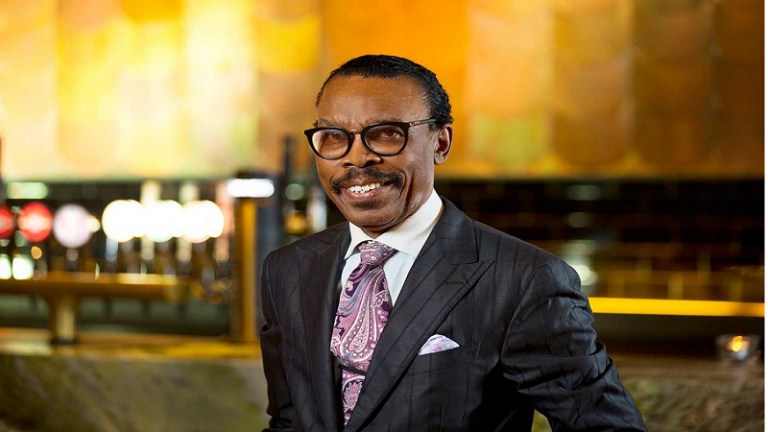
Prominent economist and Managing Director of Financial Derivatives Company, Bismarck Rewane, has expressed skepticism over the current administration’s ambitious goal of achieving a $1 trillion economy within the next few years.
Speaking during an interview on Arise TV’s morning show, Rewane outlined several challenges that make this target unattainable in the near term, despite the government’s optimistic projections.
He highlighted the sluggish GDP growth rate as a major obstacle to reaching the $1 trillion target. Nigeria’s GDP grew by 3.19% in the second quarter of 2024, a slight increase from the 2.98% growth recorded in the first quarter.
Register for Tekedia Mini-MBA edition 19 (Feb 9 – May 2, 2026): big discounts for early bird.
Tekedia AI in Business Masterclass opens registrations.
Join Tekedia Capital Syndicate and co-invest in great global startups.
Register for Tekedia AI Lab: From Technical Design to Deployment (next edition begins Jan 24 2026).
Rewane, who is part of Tinubu’s Economic Management Team, pointed out that this growth is insufficient, especially considering that approximately 75% of the economy’s sectors contracted during the same period.
“The current GDP growth rate of 3.19% is too slow to make any significant difference,” Rewane stated.
He further emphasized that Nigeria’s economy is not progressing toward its long-term goals.
“What are the broad economic goals of this economy? We wanted to be among the top 20 economies in the world; at one point, we were 26th. Today, we are 32nd, so we have worked our way down the ladder of success,” he said.
He also underscored the enormity of the task ahead for Nigeria to reach the $1 trillion economy target.
“We now said that we want the economy to be a $1 trillion economy, but currently, we are at $384 billion. That means we would need to achieve around 200% growth in the next 4 to 5 years, and that is not going to happen,” Rewane asserted.
Challenges with Economic Integration and External Shocks
Rewane also noted that while the government aims to insulate the economy from external shocks, the reality has been quite the opposite.
“We also said we want to insulate our economy from external shocks, but as we integrate our economy into the global economy, we are increasingly exposed to those shocks,” he remarked.
He explained that this increasing integration has brought about vulnerabilities, particularly as global economic conditions remain unpredictable. The combined pressures of inflation and exchange rate volatility have further complicated Nigeria’s economic trajectory, making the $1 trillion target even more elusive.
Critique of the Windfall Tax on Banks
Before his assessment of the GDP growth rate, Rewane has also critiqued the federal government’s focus on generating revenue through the recently approved windfall tax. He argued that this move contradicts the administration’s stated objective of promoting investment-led growth, explaining that the federal government’s intense focus on generating revenue through the windfall tax is counterproductive to the investment-led growth strategy that the administration claims to promote.
He pointed out that while Nigerian companies reported N1.4 trillion in foreign exchange revaluation gains, they also faced N1.7 trillion in forex losses during the same period. This resulted in a net loss of N300 billion to the economy, further questioning the effectiveness of the tax policy.
Rewane further elaborated on the disincentives for Nigerians to comply with tax policies, citing the lack of visible benefits from taxes already paid. Despite the tax-to-GDP ratio improving from around 4% to 9%, Rewane observed that there has been little to no improvement in the well-being of the populace, which diminishes the incentive to pay taxes.
Rewane’s comments come against the backdrop of President Bola Tinubu’s ambitious projections during the Nigeria Economic Summit in 2023. At the time, President Tinubu stated that a $1 trillion economy was possible within the next three years, with an even more ambitious goal of reaching $3 trillion by 2030. These projections were based on optimistic growth assumptions and anticipated policy reforms aimed at driving economic expansion.
However, the recent GDP figures and ongoing economic challenges paint a less rosy picture. While the Presidency has celebrated the 3.19% growth rate as a sign of better things to come, Rewane’s analysis suggests that significant hurdles remain, particularly in tackling inflation and stabilizing the exchange rate, which continues to be major obstacles to sustained economic growth.



